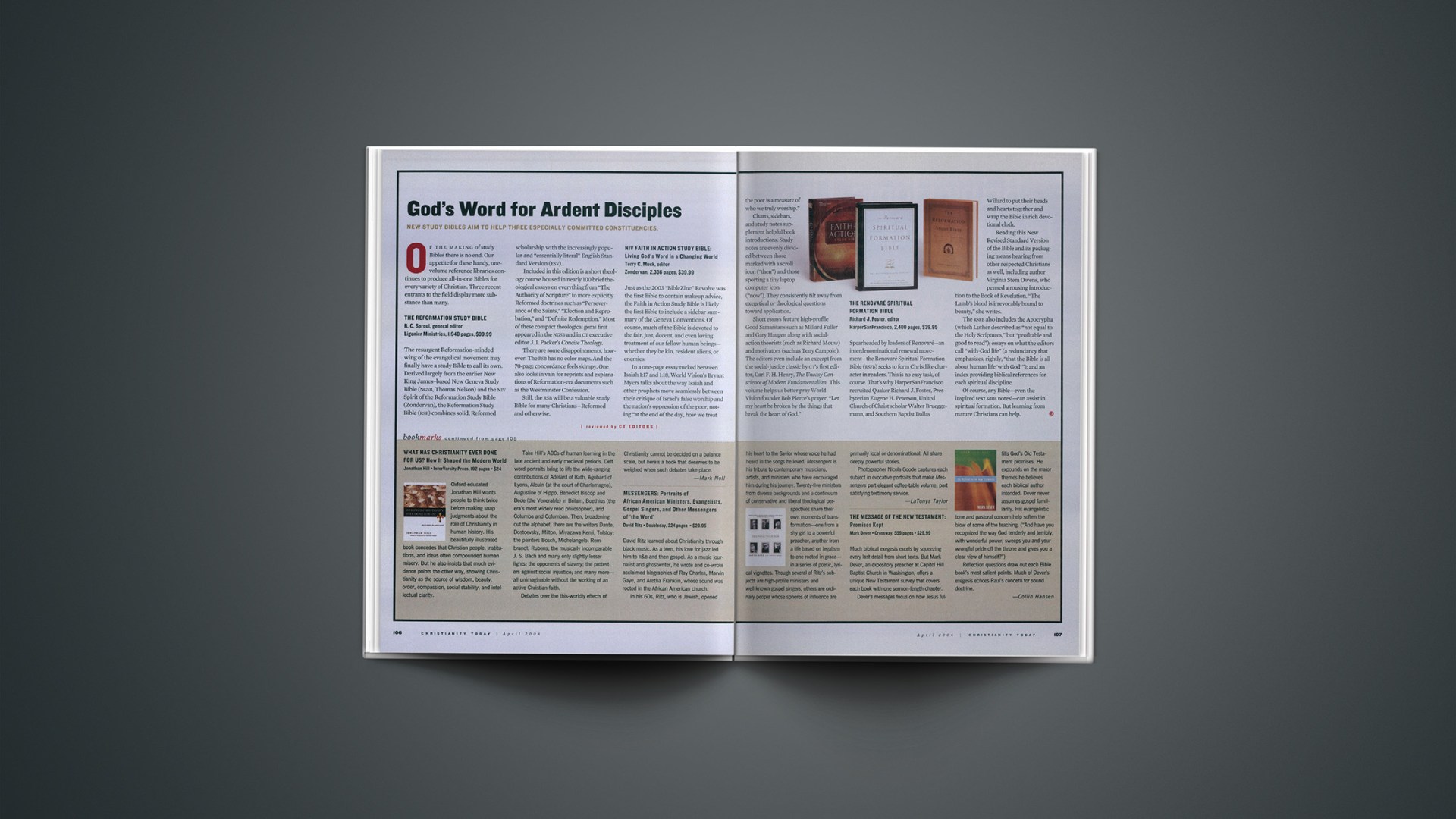Oxford-educated Jonathan Hill wants people to think twice before making snap judgments about the role of Christianity in human history. His beautifully illustrated book concedes that Christian people, institutions, and ideas often compounded human misery. But he also insists that much evidence points the other way, showing Christianity as the source of wisdom, beauty, order, compassion, social stability, and intellectual clarity.
 WHAT HAS CHRISTIANITYEVER DONE FOR US?:How It Shapedthe Modern World Jonathan Hill, InterVarsity Press, 192 pp.; $24 |
Take Hill’s ABCs of human learning in the late ancient and early medieval periods. Deft word portraits bring to life the wide-ranging contributions of Adelard of Bath, Agobard of Lyons, Alcuin (at the court of Charlemagne), Augustine of Hippo, Benedict Biscop and Bede (the Venerable) in Britain, Boethius (the era’s most widely read philosopher), and Columba and Columban. Then, broadening out the alphabet, there are the writers Dante, Dostoevsky, Milton, Miyazawa Kenji, Tolstoy; the painters Bosch, Michelangelo, Rembrandt, Rubens; the musically incomparable J. S. Bach and many only slightly lesser lights; the opponents of slavery; the protesters against social injustice; and many more—all unimaginable without the working of an active Christian faith.
Debates over the this-worldly effects of Christianity cannot be decided on a balance scale, but here’s a book that deserves to be weighed when such debates take place.
Copyright © 2006 Christianity Today. Click for reprint information.
Related Elsewhere:
What Has Christianity Ever Done for Us? is available from Christianbook.com and other book retailers.
More information is available from InterVarsity Press.
For book lovers, our 2005 CT book awards are available online, along with our book awards for 2004, 2003, 2002, 2001, 2000, 1999, 1998, and 1997, as well as our Books of the Twentieth Century. For other coverage or reviews, see our Books archive and the weekly Books & Culture Corner.










